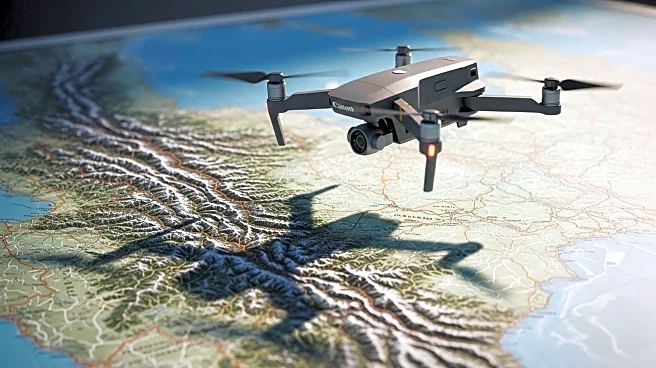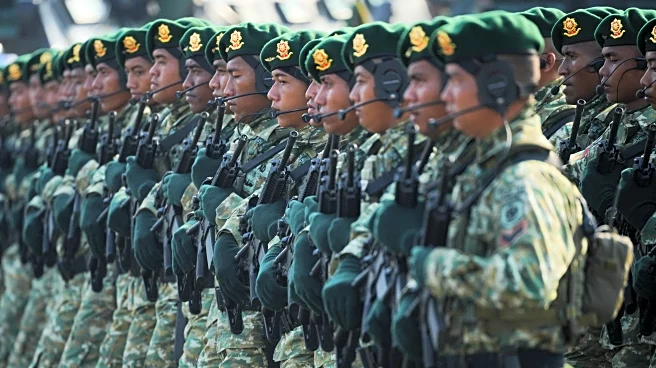What's Happening?
Russian President Vladimir Putin has stated that the crash of an Azerbaijani passenger jet in December 2024, which resulted in 38 fatalities, was due to Russian air defenses responding to a Ukrainian drone. The Azerbaijani Airlines Flight 8243 was on a route from Baku to Grozny when it was accidentally hit by Russian missiles, causing it to crash while attempting to land in western Kazakhstan. Putin's comments were made during a meeting with Azerbaijani President Ilham Aliyev in Dushanbe, Tajikistan, where both leaders were attending a summit. Putin has promised compensation to Azerbaijan for the incident.
Why It's Important?
The incident highlights the complexities and dangers of military operations near civilian areas, particularly in regions with ongoing geopolitical tensions. Putin's admission and promise of compensation are crucial for maintaining diplomatic relations between Russia and Azerbaijan, which were strained following the crash. The acknowledgment may also influence international perceptions of Russia's military practices and its handling of civilian safety during military operations. This development could lead to increased scrutiny of air defense systems and their protocols.
What's Next?
Russia is expected to engage in diplomatic discussions with Azerbaijan to finalize compensation for the victims' families and address any remaining issues related to the crash. This may involve negotiations on the amount and form of compensation, as well as measures to prevent similar incidents in the future. The situation may also prompt broader discussions on international aviation safety standards and the need for improved coordination between military and civilian airspace operations.
Beyond the Headlines
The crash and subsequent admission by Russia may have implications for regional security and diplomatic relations, particularly in the context of Russia's ongoing conflict with Ukraine. The incident raises questions about the ethical and legal responsibilities of military operations near civilian areas, potentially influencing international norms and practices. It may also affect public perception of Russia's military capabilities and its approach to international incidents.












